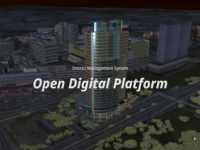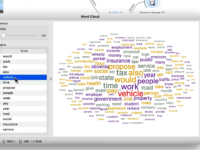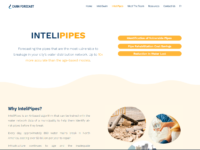The Fourth Industrial Revolution brings many opportunities, but also new challenges for public administration. The online training for the Fourth Industrial Revolution: New Technologies, teaches public servants and private sector employees the basics of AI, Blockchain, Virtual Reality, IoT, 3D printing, Robots, Drones and the Digital Economy. Through quizzes, games and many illustrative examples, participants can immerse themselves into the modern world of emerging technologies, which is crucial…
Innovation Tag: Artificial Intelligence (AI)
ESİM is an application developed for persons with hearing impairment to benefit from health services without communication barriers. Citizens can create records for emergency situations and request hospital appointments free of charge on Esim mobile applications from their smart devices. In addition, disabled citizens can receive instant support from expert medical personnel who know sign language by video call.
"Electronic Quoter"" is a Peruvian purchasing innovative tool which consists of the implementation of information service aimed at public entities that contract through the Electronic Catalogues of Framework Agreements. It allows them to estimate the price of the goods contained in their purchase request and has allowed them to reduce the time of the preparatory actions of the procurement process from 68.1 calendar days to only 1 day, for the benefit of 2,000 public entities and the citizens…
Singapore has set its sights on becoming a world-class, tech-driven city-state, and it is doing so through the Smart Nation ambition, which seeks to harness technology to bring benefits from digital transformation in society, economy and government to how people and businesses live, work and play. The Open Digital Platform (ODP) is a key component in the digital infrastructure underpinning Singapore’s Smart Nation ambition. The ODP takes an integrated masterplan approach from the ground up,…
Every day, civil servants and officials are confronted with many voluminous documents that need to be reviewed and applied according to the information requirements of a specific task. This is the case when making decisions, drafting legislation and policies, reviewing legislation and policies, assessing the impact of legislation and policies, carrying out various analyses, describing data sources and services, and many other tasks. To enhance the processing efficiency and comprehensive analysis…
Water networks are confronted with aging infrastructure, increased urban population, and climate change. The City of Greater Sudbury has collaborated with CANN Forecast to implement InteliPipes, an AI-based decision-support system that leverages various data sources to improve the overall reliability of its water network. With it the City can (a) understand better the network’s degradation over time, (b) tailor inspection plans and replacement programmes, and (c) optimise watermains…
Case Study
School-Effect Indicator: An analysis of schools, using artificial intelligence, according to the…

The São Paulo State Court of Auditors built a new analysis methodology, the School-Effect Indicator (IEE), which includes factors such as the socioeconomic status of students in the evaluation of school effectiveness. Through Artificial Intelligence (AI), it is calculated how much the school has contributed to the competence of its students, highlighting the principle of equity, recognizing the needs of each school group and working to reduce the impact of differences.
‘Neyim Var’ application is an expert system application that asks various questions with the algorithm prepared in accordance with the medical guidelines together with the complaints of the citizens, evaluates the past medical records, offers a total of 5 possible diagnoses with the support of artificial intelligence and directs the patient to 3 appropriate clinics.
Better Insights into Collective Climate Actions: The currently fragmented, insufficient and incompatible sources building the climate data framework remain a critical threat to a successful outcome of the 2023 Global Stocktake for the Paris Agreement. While we observe an increasing amount of participation, effective ways of connecting, visualizing and analysing actors patterns & impact, within the overall climate initiatives, remain limited.
The techDetector is the first technology radar giving an overview of emerging technologies that have the potential to influence the area of sustainable development in the future. It lists future technologies from all sectors of sustainable development and assesses their potential impact on sustainability and gender equality. The techDetector helps inform, sensitize and support foresight processes, enabling better decision-making by providing sound information on technological developments.








